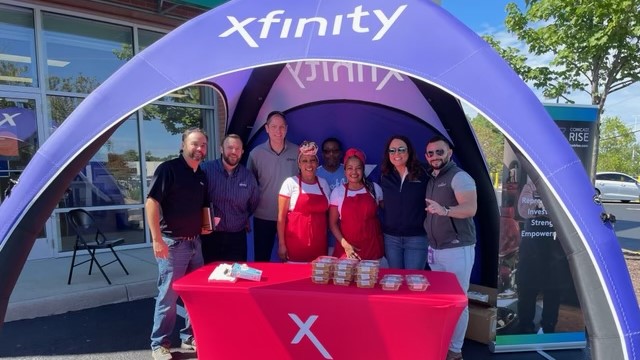Comcast Offering Free and Discounted Internet for Residents in Beltway Region Through Affordable Connectivity Program

Comcast is offering free and discounted Internet service through the Affordable Connectivity Program (ACP) including in its Beltway Region – which includes Maryland, Virginia, Washington, D.C., and parts of Delaware, North Carolina and West Virginia.
ACP provides eligible low-income households with a credit up to $30 per month toward the cost of Internet and/or mobile service ($75 per month for households on qualifying Tribal lands). Customers who qualify can apply ACP credits to any tier of Xfinity Internet, including Internet Essentials, or Xfinity Mobile.
Comcast and its community partners in the Beltway Region – including Montgomery Housing Partnership, The Green Beret Project and The Senior Zone – are hosting ACP awareness events throughout the summer where residents can learn about eligibility, benefits and how to sign up.
“The Affordable Connectivity Program is a game-changing opportunity to help close the digital divide and connect the people who need it most to the Internet,” said Michael Parker, Senior Vice President for Comcast’s Beltway Region. “We are excited to be working with our partners in the community to help residents get connected and ensure they have access to the tools and skills needed to thrive in today’s digital economy.”
Comcast recently announced additional efforts to increase participation in ACP and help people benefit from the program.
Internet Essentials Plus
Internet Essentials Plus is a new tier of service for Comcast’s hallmark digital equity program that is available in all Comcast service areas to any customer who qualifies. It offers twice the download speed – up to 100 Mbps – of the traditional Internet Essentials service, which has a 50 Mbps download speed, and also includes a cable modem, access to millions of WiFi hotspots, and unlimited data for $29.95 per month to new customers who qualify. Existing Internet Essentials customers can upgrade to this new, faster tier at any time. Customers who subscribe to Internet Essentials Plus and enroll in ACP will effectively get broadband for free after the $30/month government discount is applied.
Xfinity Mobile
Comcast’s top-rated Xfinity Mobile service, which includes 5G, is now available to customers enrolled in ACP, giving them the ability to save money on their connectivity needs inside and out of the home. Internet Essentials customers can use their $30/month ACP discount to pay for both Xfinity Internet and Xfinity Mobile service. For example, an Internet Essentials customer (paying $9.95/month) can add one line of Unlimited on Xfinity Mobile ($45/month) for $24.95/month after applying the ACP discount.
Xfinity Mobile has no line access or activation fees and comes with unlimited talk and text, so customers only pay for cellular data. Customers can mix and match between two straightforward plans on Xfinity Mobile with 5G included, Unlimited or By the Gig, and pair these mobile plans with any tier of Internet service to provide ultimate flexibility. They can also switch back and forth between Unlimited and By the Gig mobile plans at any time. In addition, Xfinity Mobile devices automatically connect to millions of Xfinity WiFi hotspots across the country to reduce customers’ dependence on cellular and save money.
Sign up for ACP
Comcast is equipping tens of thousands of call center representatives to help customers sign up for Internet Essentials Plus and educate about ACP. New and existing Xfinity Internet or Internet Essentials customers can visit www.xfinity.com/acp or call 844-389-4681 for more information, to determine eligibility, and sign up.
Additionally, people will soon be able to visit 500+ Xfinity Stores nationwide to sign up for Internet Essentials Plus and learn more about how to enroll in ACP to get Internet service for free.
Project UP
Through Project UP, Comcast’s $1 billion commitment to advance digital equity and help build a future of unlimited possibilities, the company is partnering with its network of thousands of non-profit organizations in communities across the country to increase awareness of, and participation in ACP, while also addressing broadband adoption issues like the lack of digital skills.